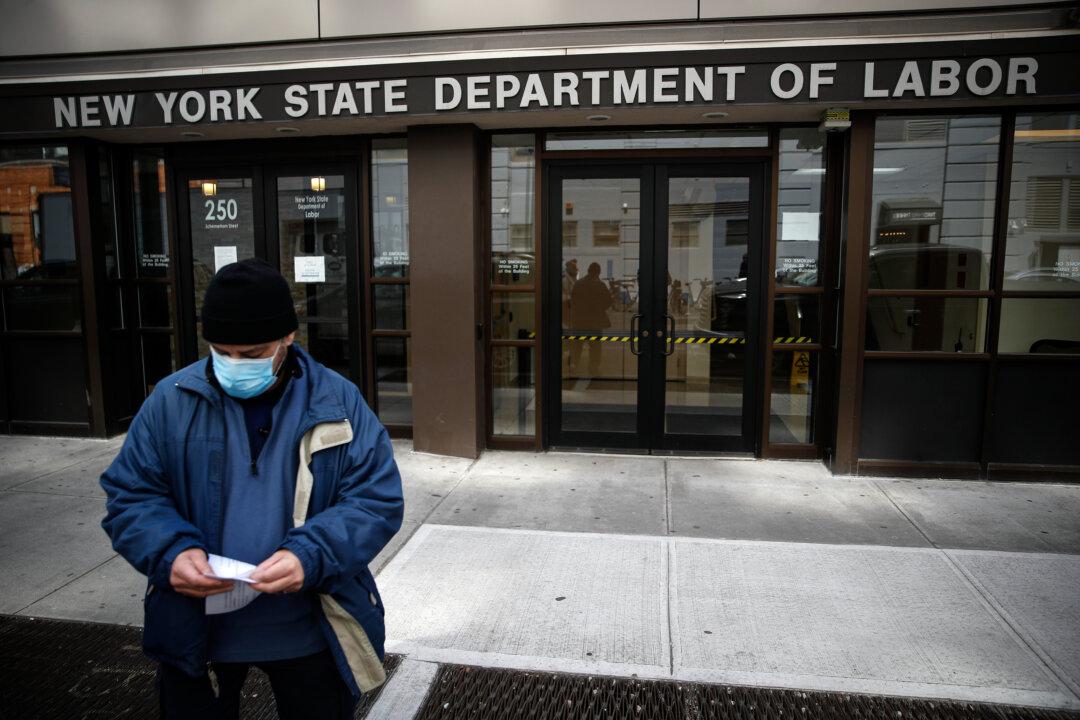WASHINGTON—Millions more Americans filed for unemployment benefits last week as backlogs in processing claims continue to be cleared and disruptions from the CCP virus unleash a second wave of layoffs, pointing to another month of staggering job losses in May.
The Labor Department’s weekly jobless claims report, the most timely data on the economy’s health, showed a surge to a record high in the number of people on unemployment rolls, suggested that businesses were probably in no rush to rehire workers as they reopen.





